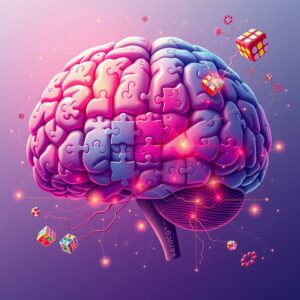
Introduction to Brain Fitness
Brain fitness refers to the idea of optimizing brain health and performance, similar to physical fitness for the body. Just as regular exercise keeps our bodies in shape, engaging in specific activities and habits can help maintain and enhance cognitive function. Brain fitness encompasses a variety of practices, including mental exercises, healthy lifestyle choices, and techniques for managing stress. By prioritizing brain fitness, individuals can improve their memory, focus, creativity, and overall mental well-being.
Benefits of a Daily Routine
Establishing a daily routine is essential for cultivating brain fitness. A consistent schedule can enhance productivity and reduce stress by creating a sense of structure and predictability. Daily routines help regulate sleep patterns, allowing for sufficient rest, which is crucial for cognitive function. Moreover, having set times for meals, exercise, and mental activities can encourage healthier choices and foster a positive mindset. Over time, these routines can lead to improved memory retention, increased focus, and a greater capacity for learning.
Key Elements: Sleep, Nutrition, Exercise
1. Sleep: Quality sleep is fundamentally linked to brain health. During sleep, the brain consolidates memories, removes toxins, and restores energy levels. Aim for 7-9 hours of uninterrupted sleep each night to optimize cognitive function and mental clarity.
2. Nutrition: A balanced diet rich in nutrients supports brain health. Foods high in antioxidants, healthy fats, vitamins, and minerals, such as fruits, vegetables, whole grains, and fatty fish, can enhance cognitive function and protect against age-related decline.
3. Exercise: Regular physical activity increases blood flow to the brain and can stimulate the production of neurotrophic factors that promote neuron growth. Aim for at least 150 minutes of moderate aerobic activity weekly, along with strength training exercises to maintain overall health.
Mental Activities: Puzzles, Reading
Engaging in mental activities is crucial for sharpening cognitive skills. Activities such as puzzles, crosswords, sudoku, and reading can help strengthen neural connections and improve problem-solving abilities. Reading, in particular, enhances vocabulary, comprehension, and critical thinking skills. Diversifying mental exercises by trying different types of puzzles, learning new languages, or exploring new hobbies can keep the brain engaged and stimulated.
Mindfulness & Stress Reduction
Incorporating mindfulness practices, such as meditation or yoga, can improve brain fitness by reducing stress and promoting emotional regulation. Mindfulness helps individuals focus on the present moment, which can lead to improved attention and reduced symptoms of anxiety and depression. Mindfulness practices also foster self-awareness and can enhance overall mental clarity and resilience.
Consistency and Tracking Progress
Consistency is key to achieving lasting brain fitness results. Establishing a regular routine for sleep, nutrition, exercise, and mental activities maximizes the benefits over time. Tracking progress through journals or apps can help maintain motivation and provide insights into what works best individually. Celebrating small achievements along the way can reinforce positive habits and encourage ongoing commitment to maintaining brain fitness.
In summary, prioritizing brain fitness involves a holistic approach that includes sleep, nutrition, physical exercise, mental activities, mindfulness, and consistent routines. By adopting these practices, individuals can enhance their cognitive abilities and promote long-term brain health.


